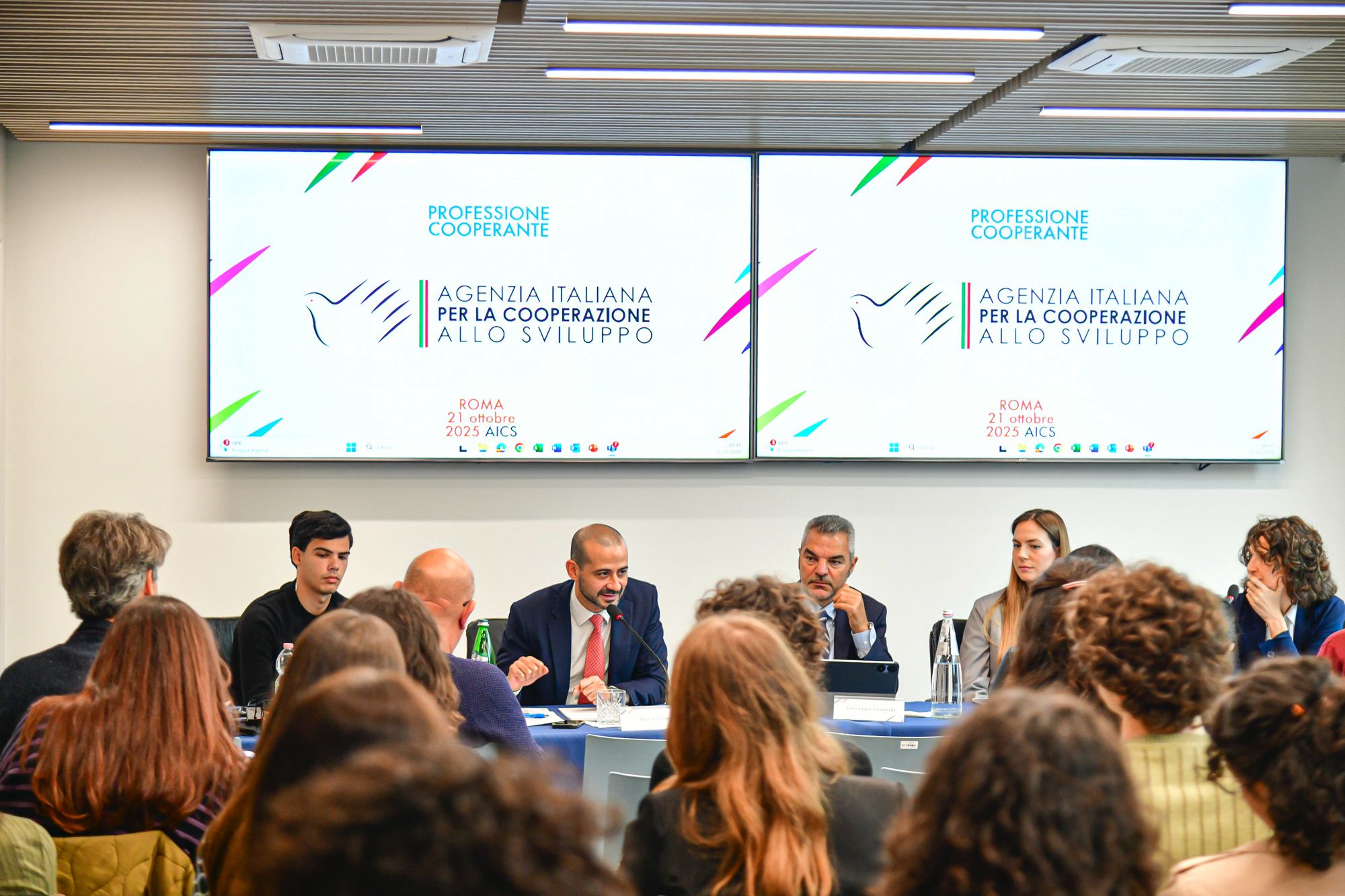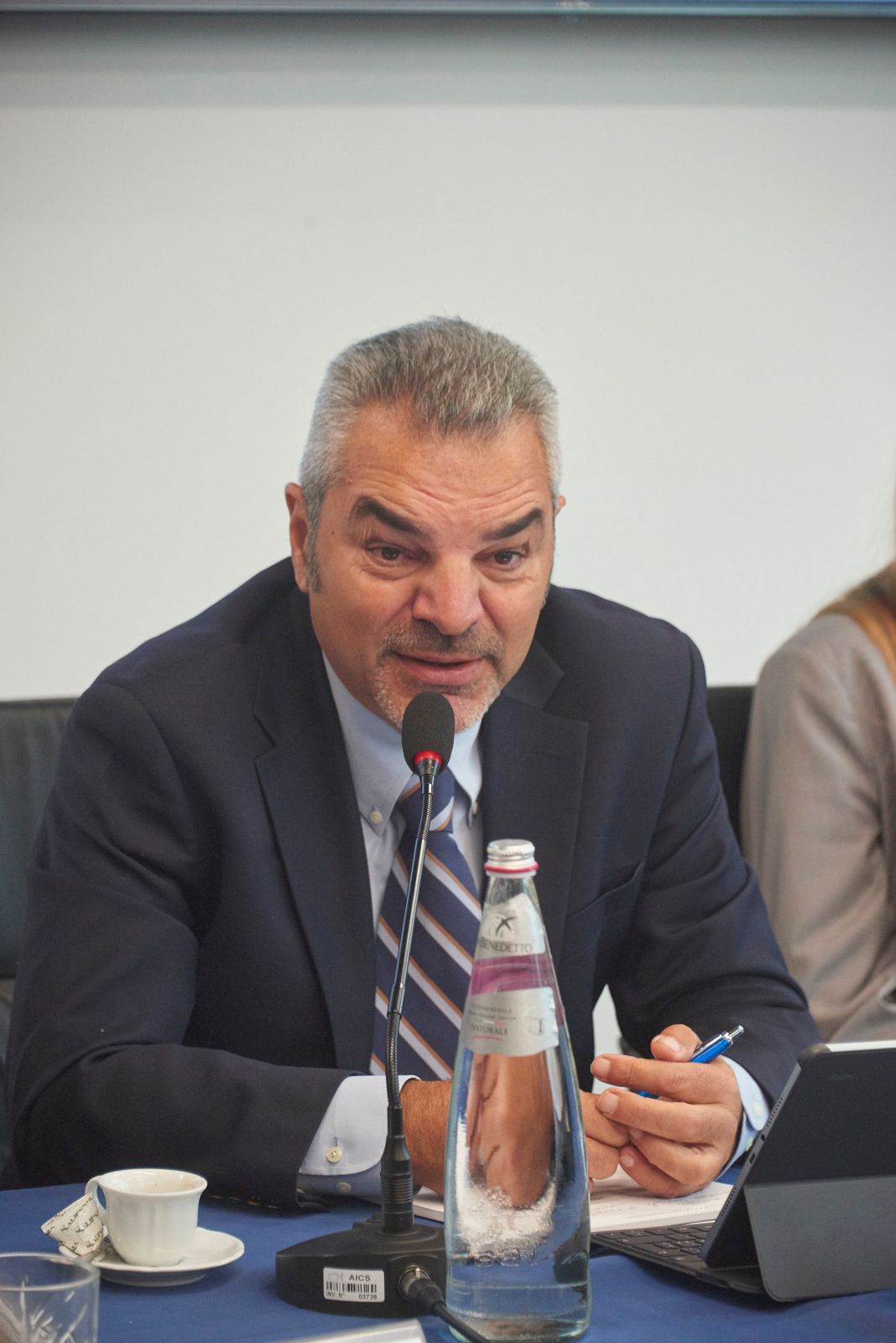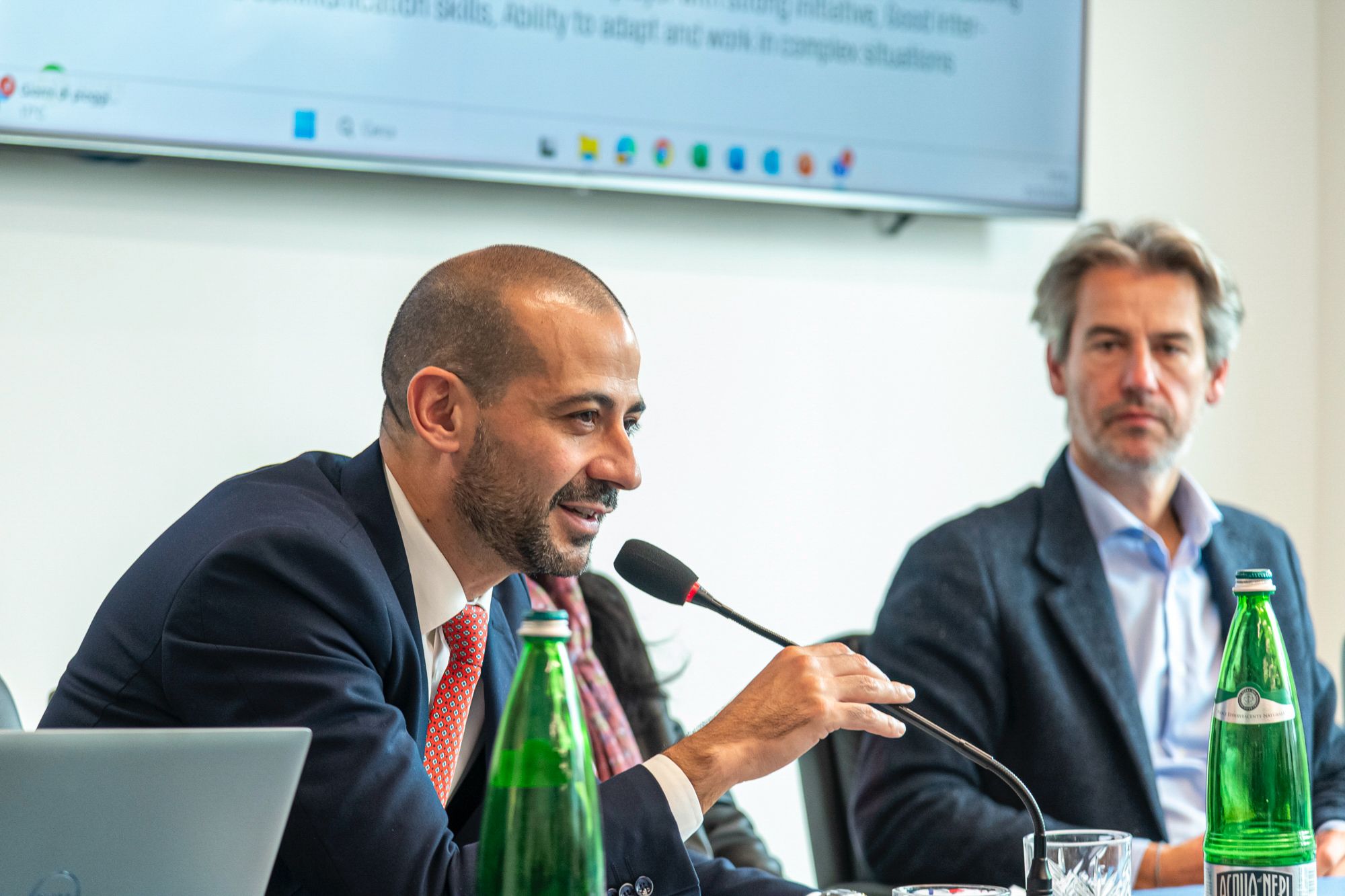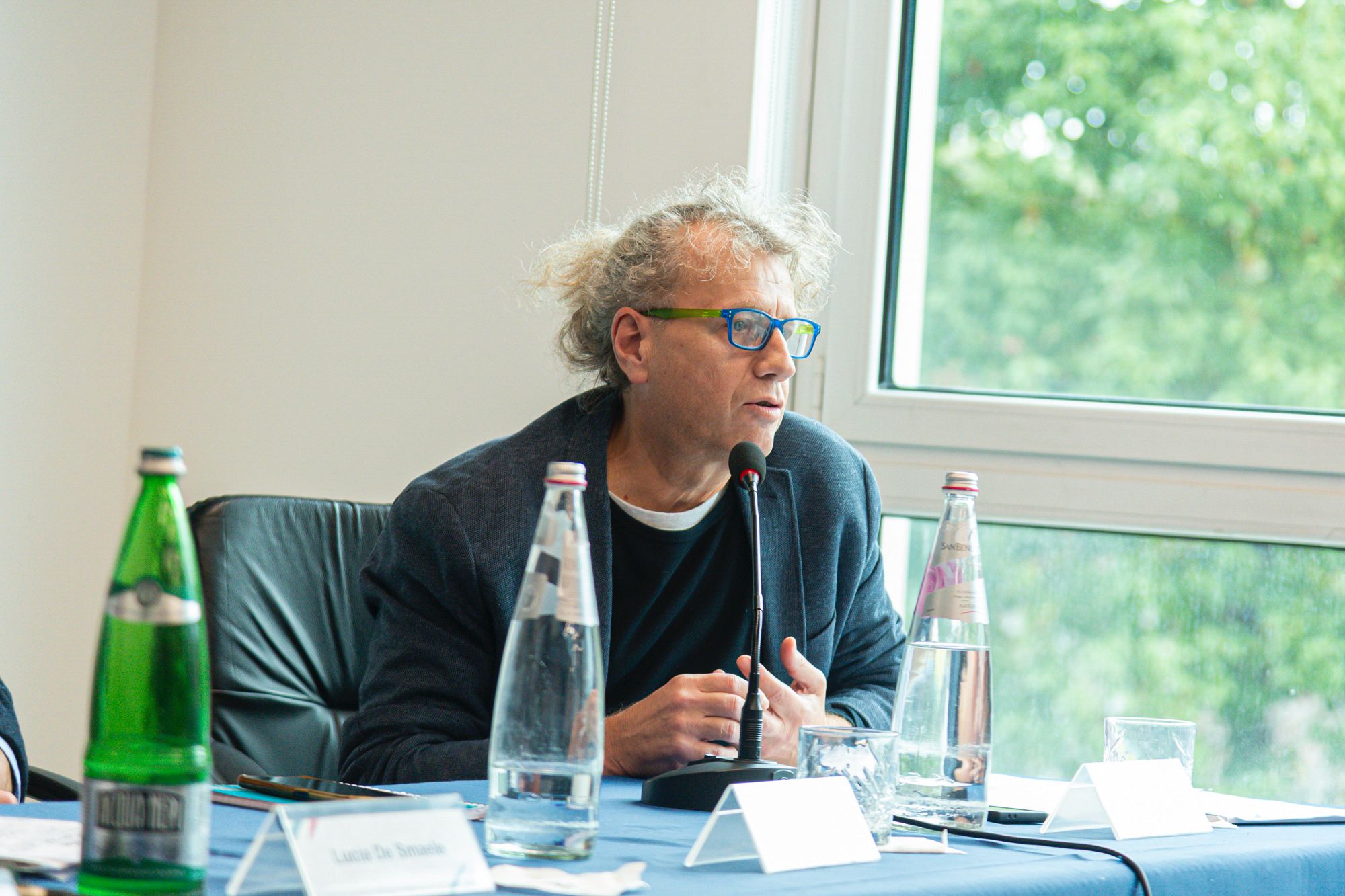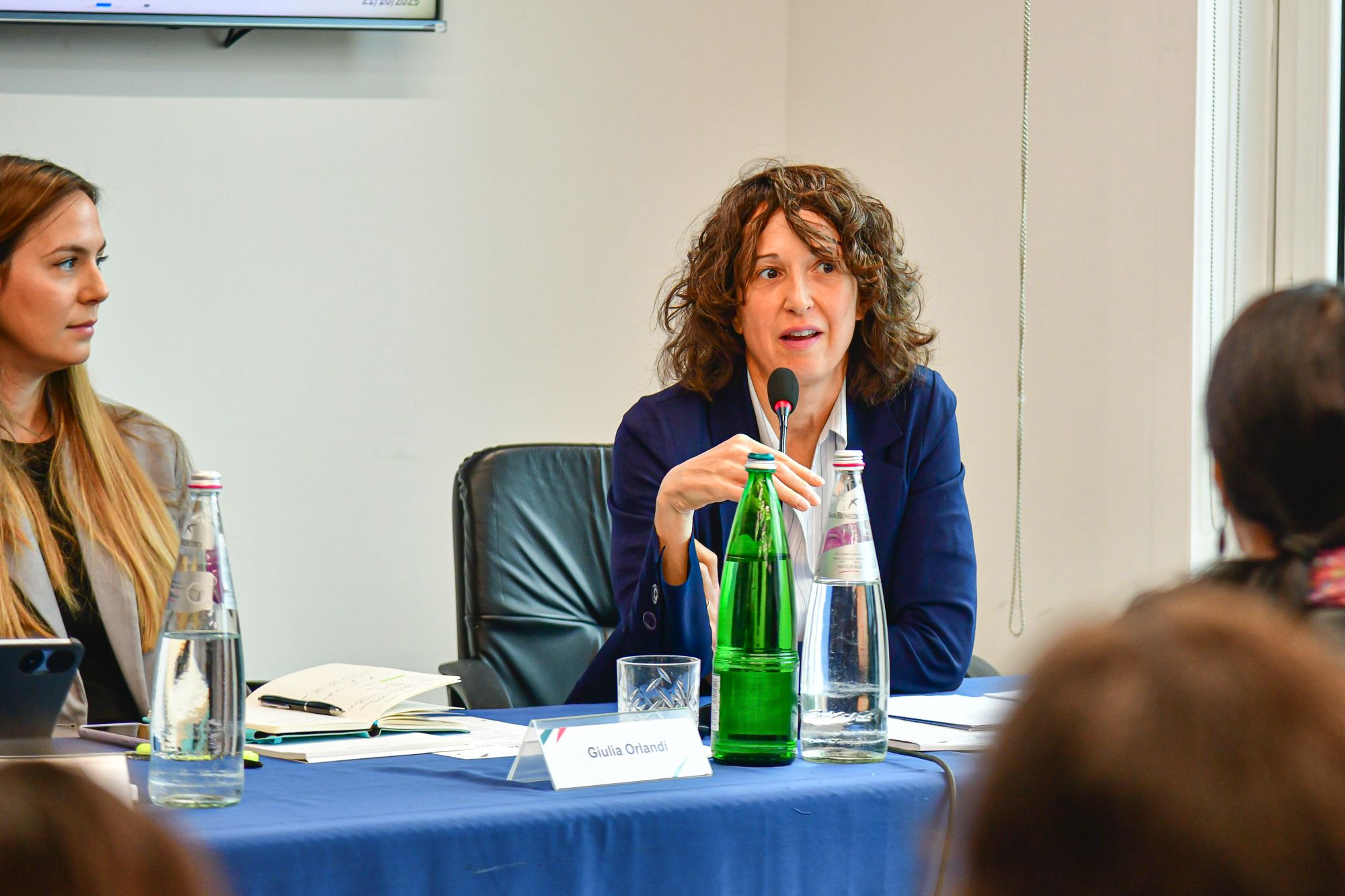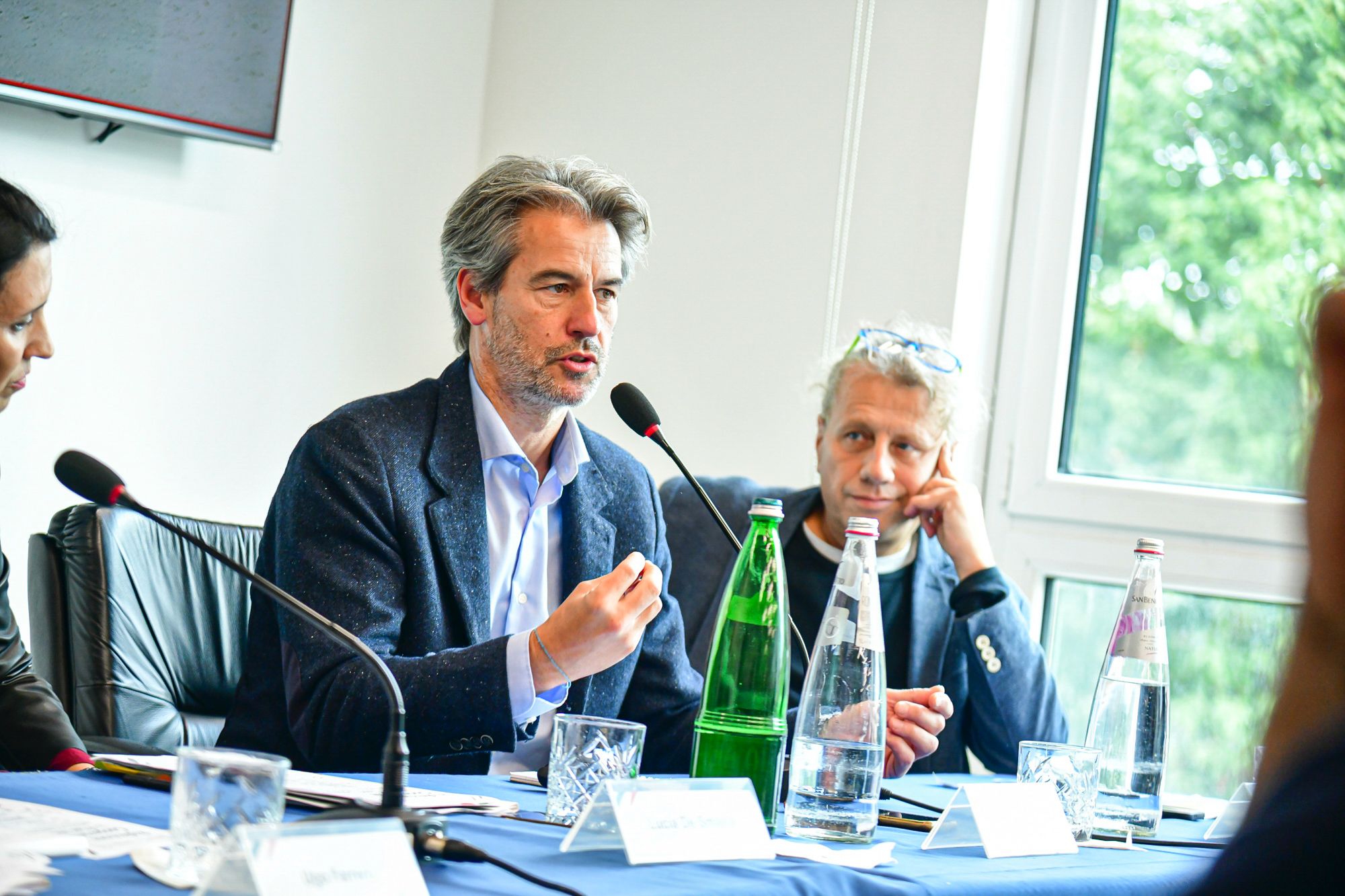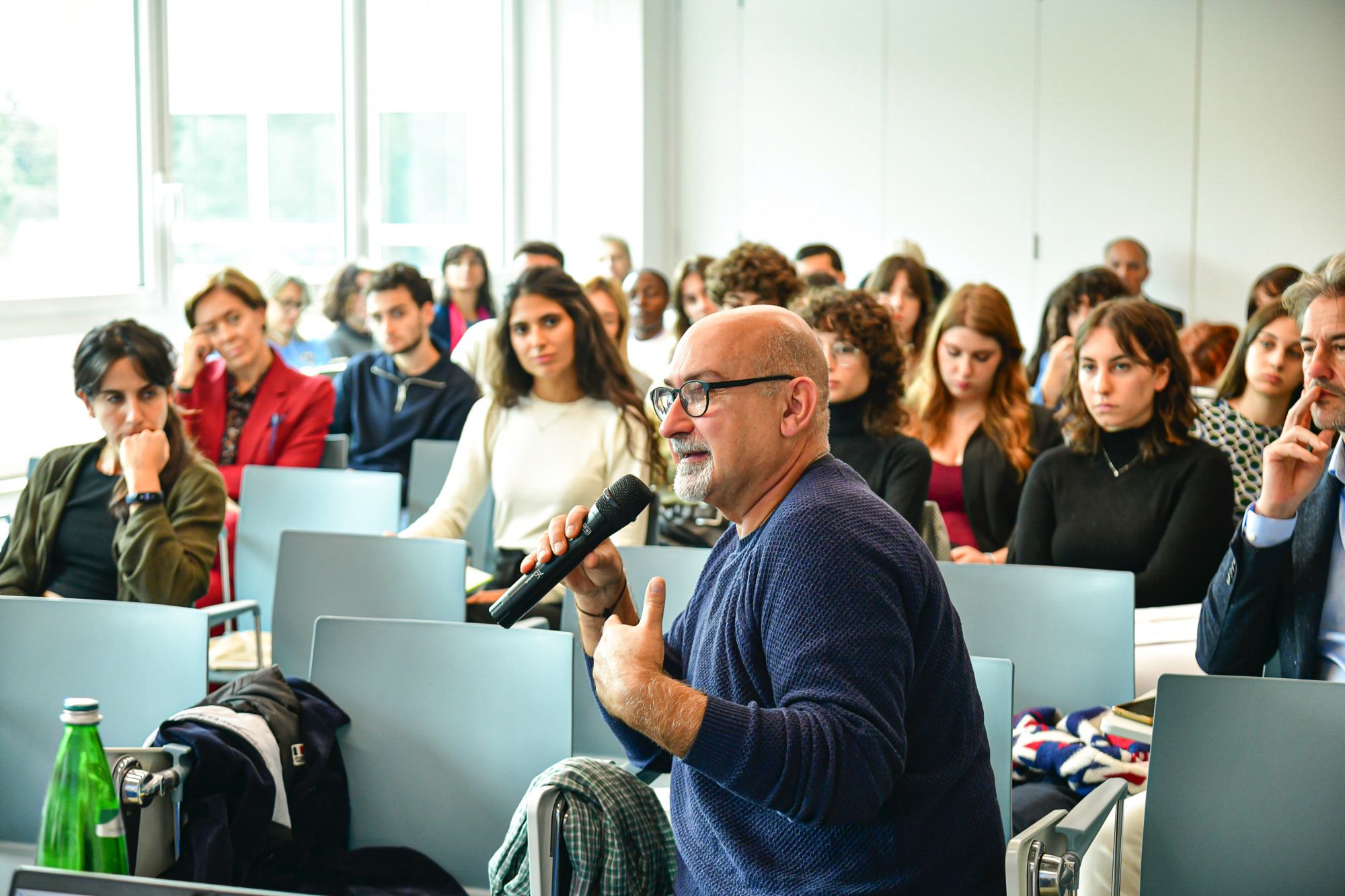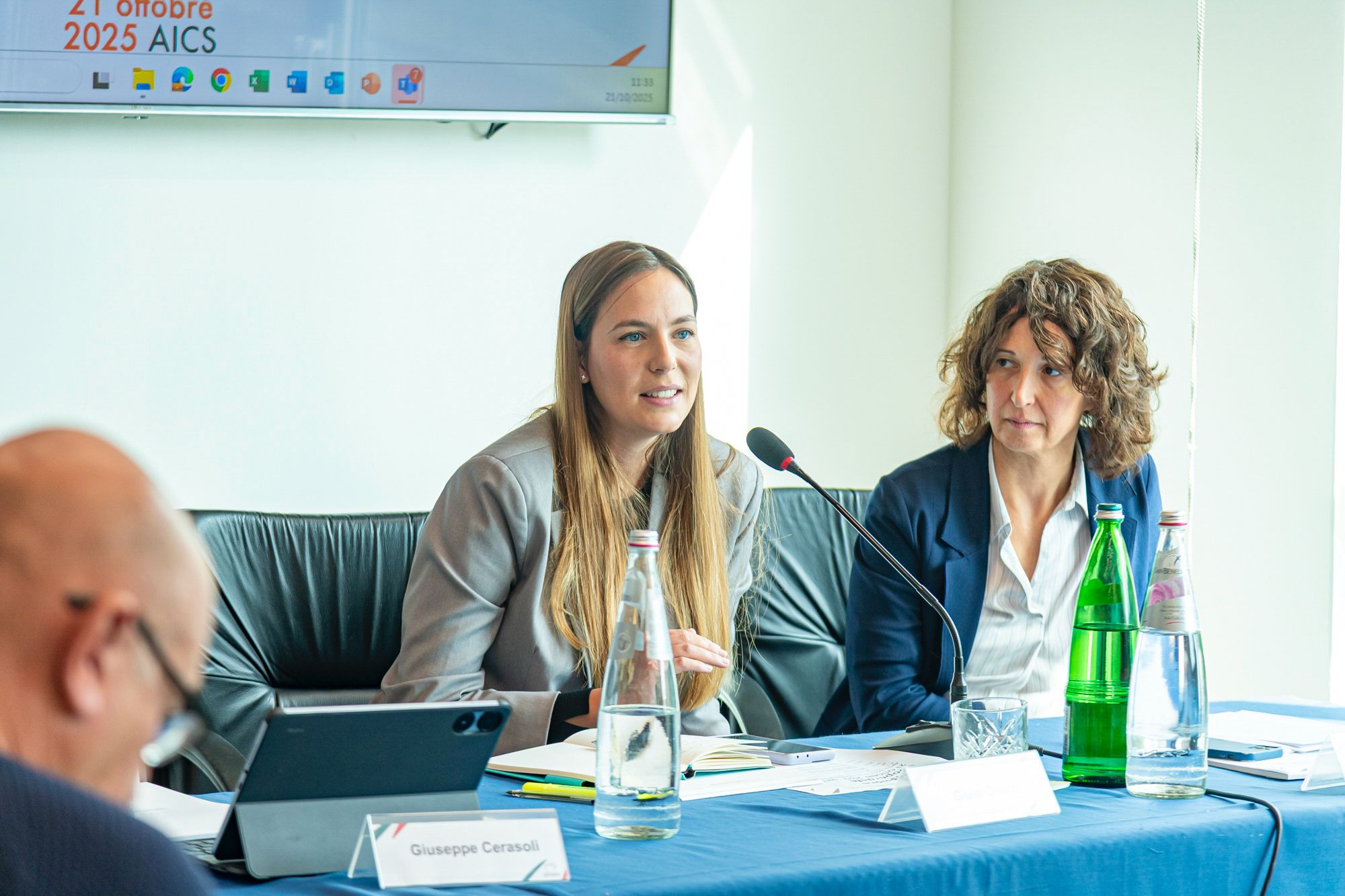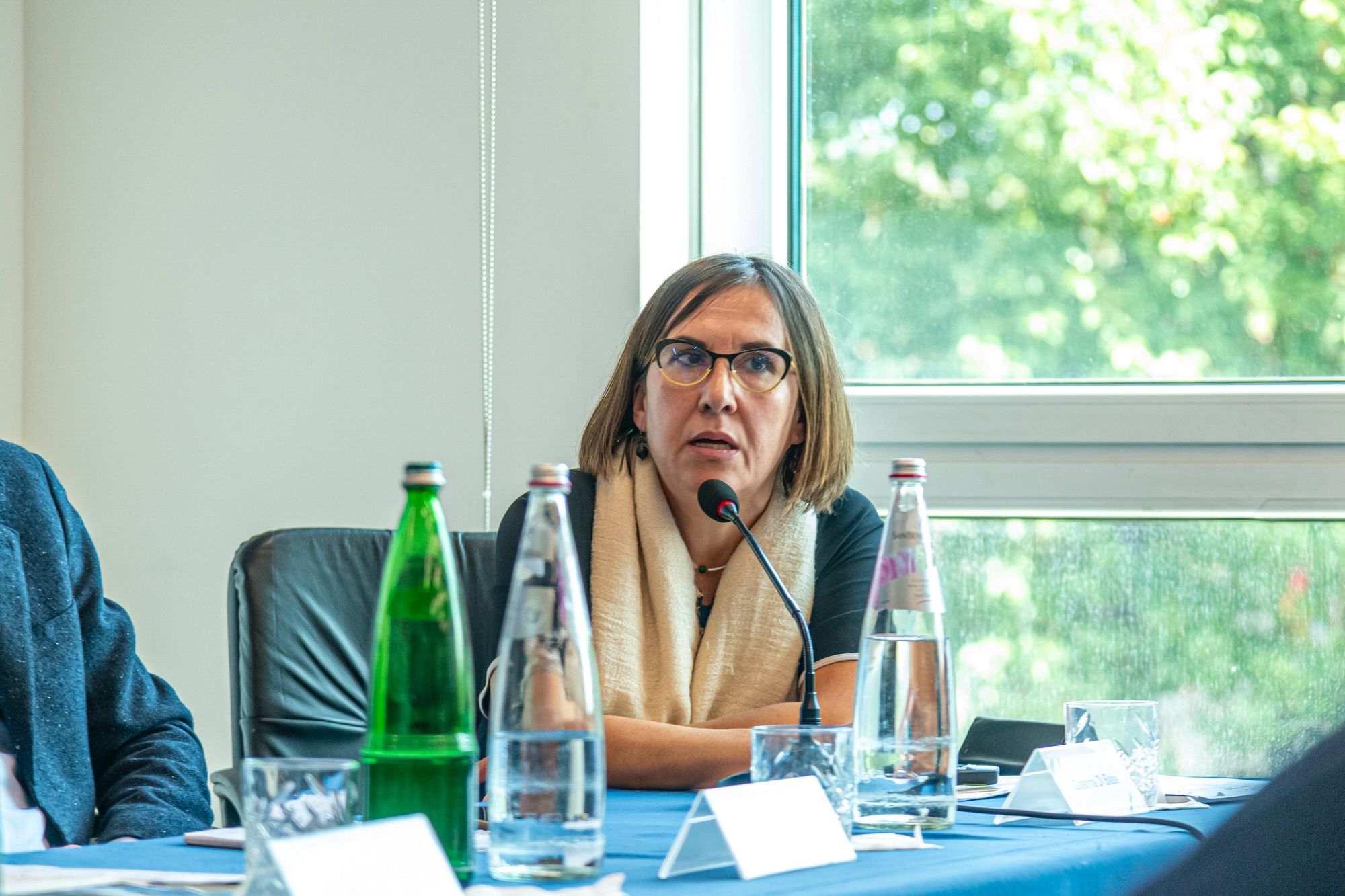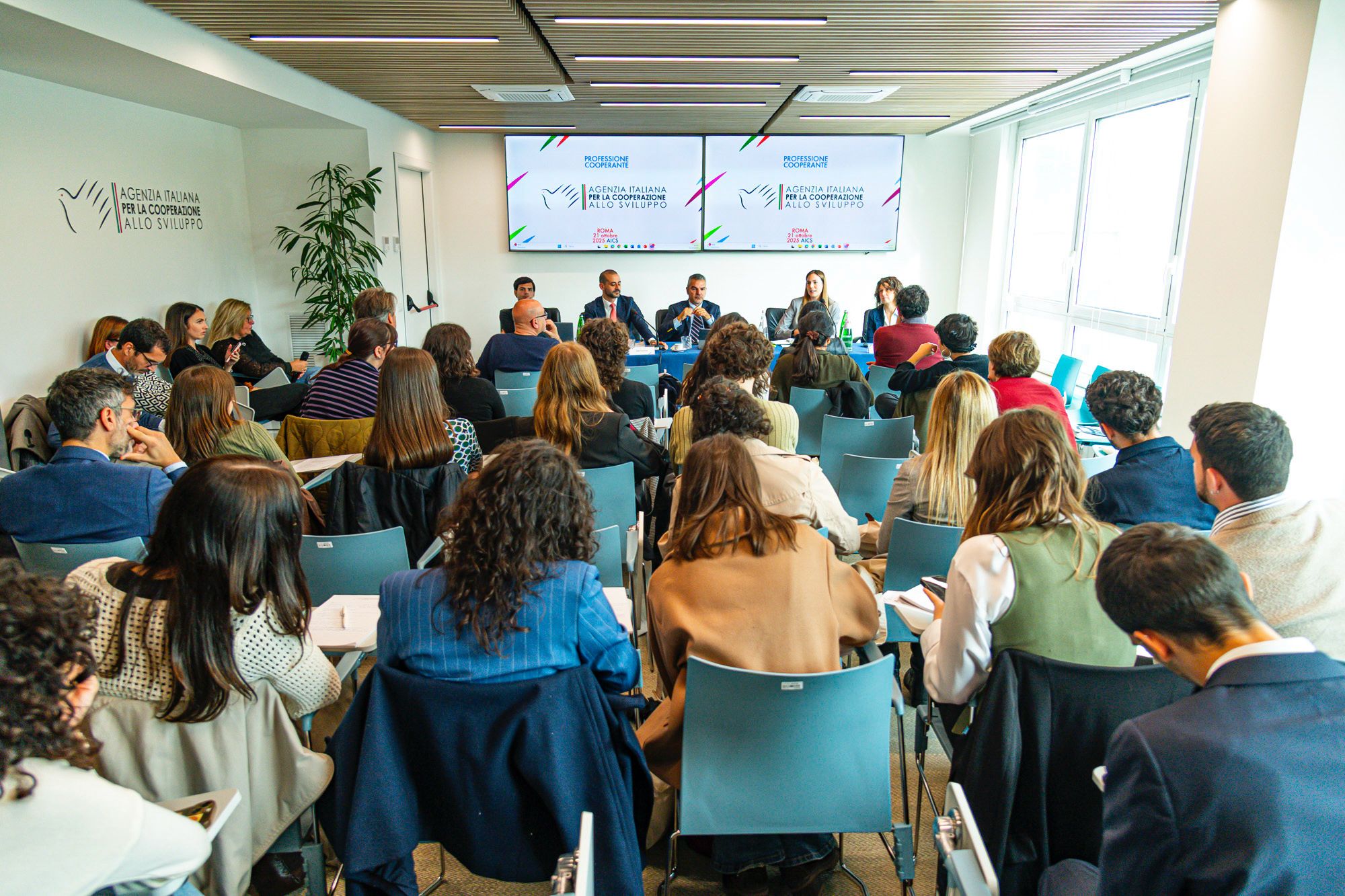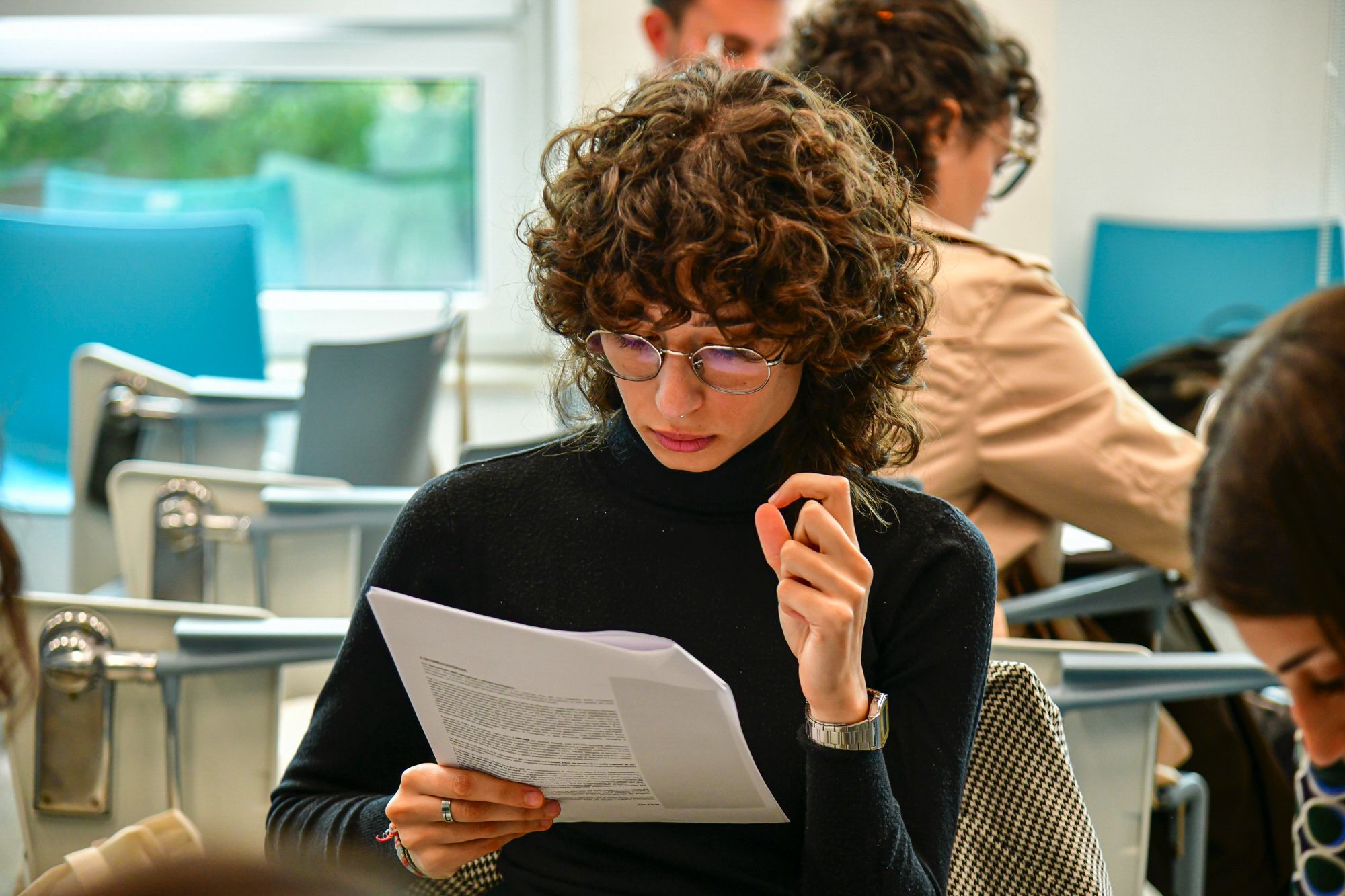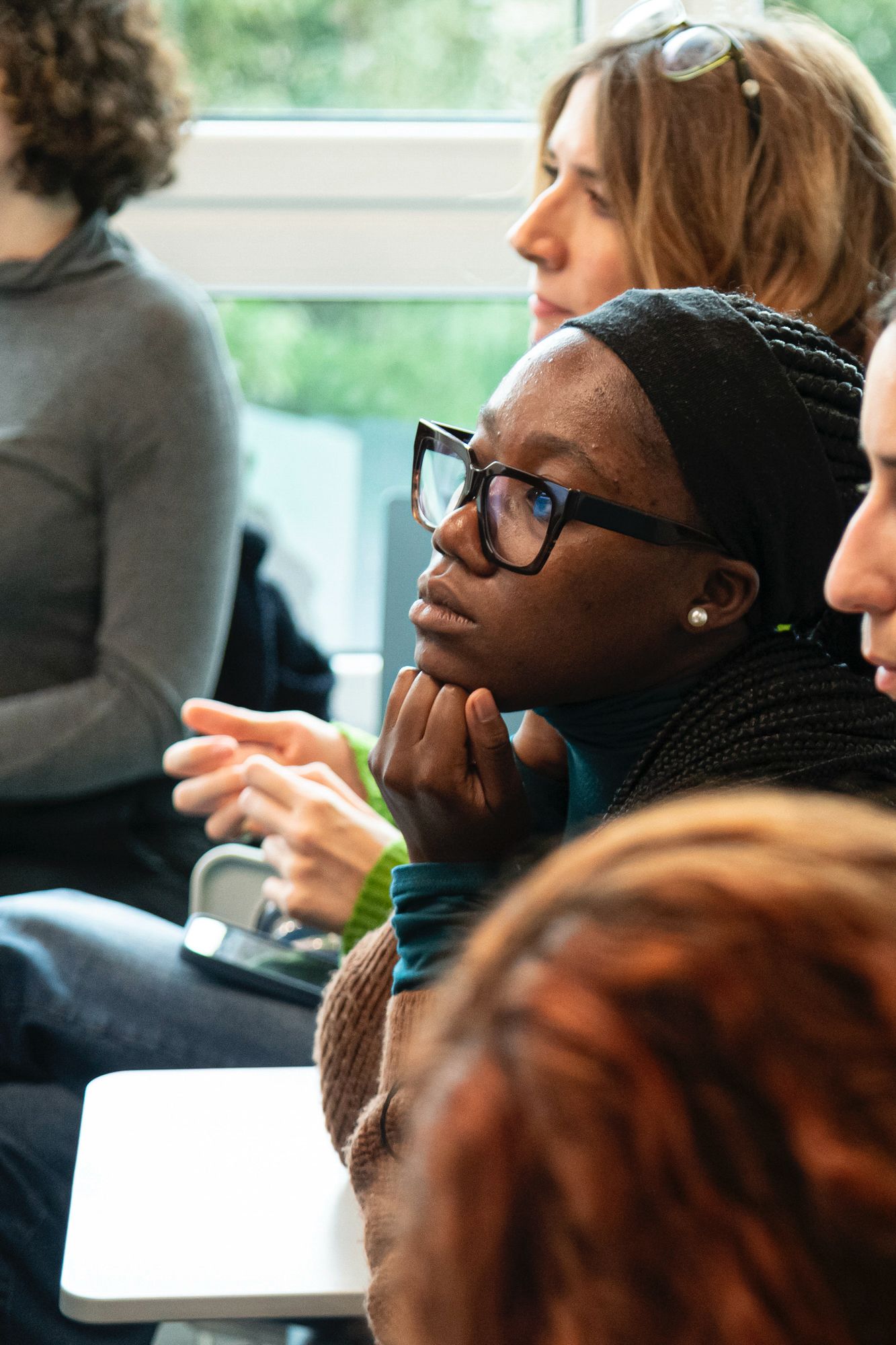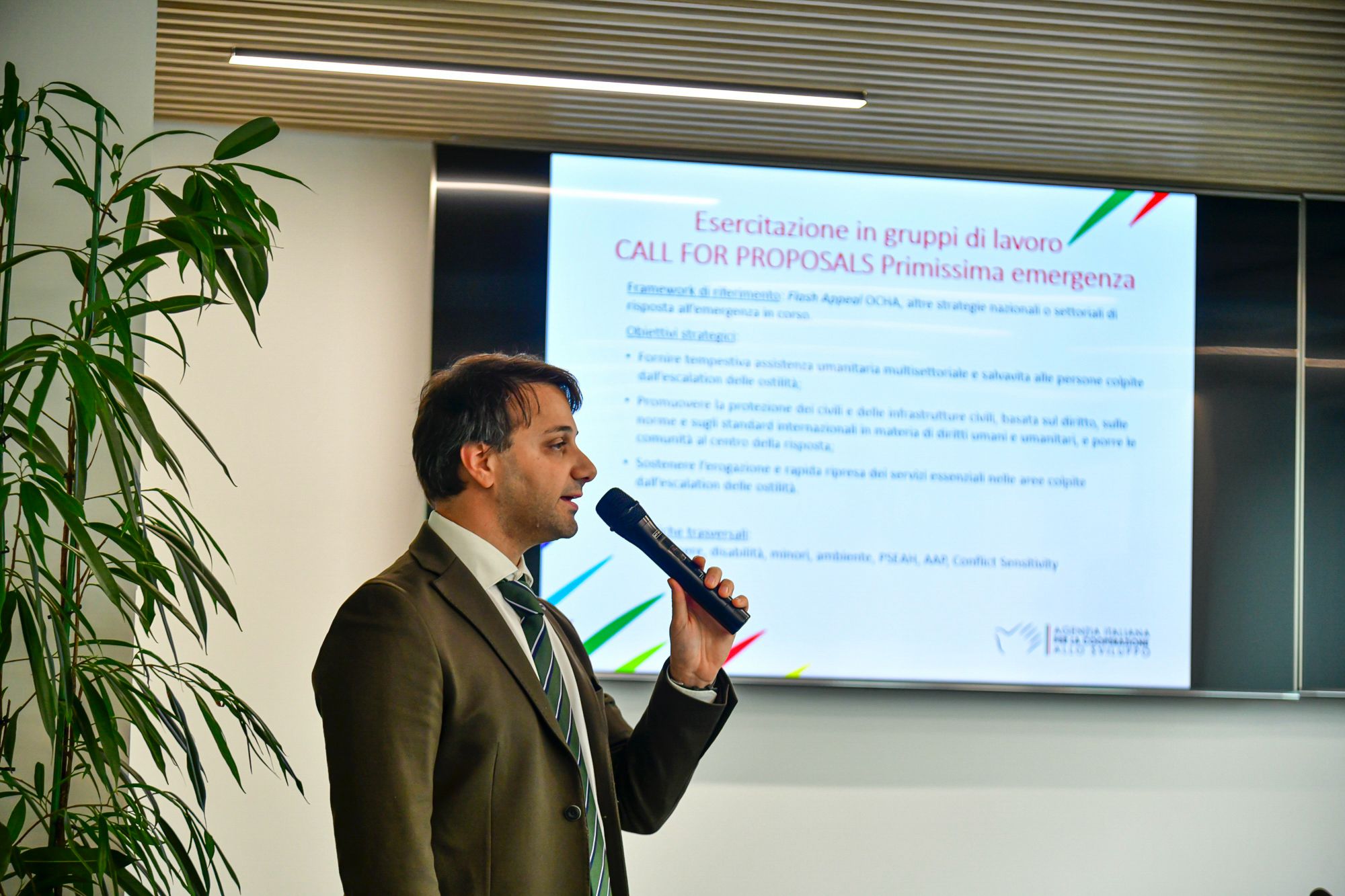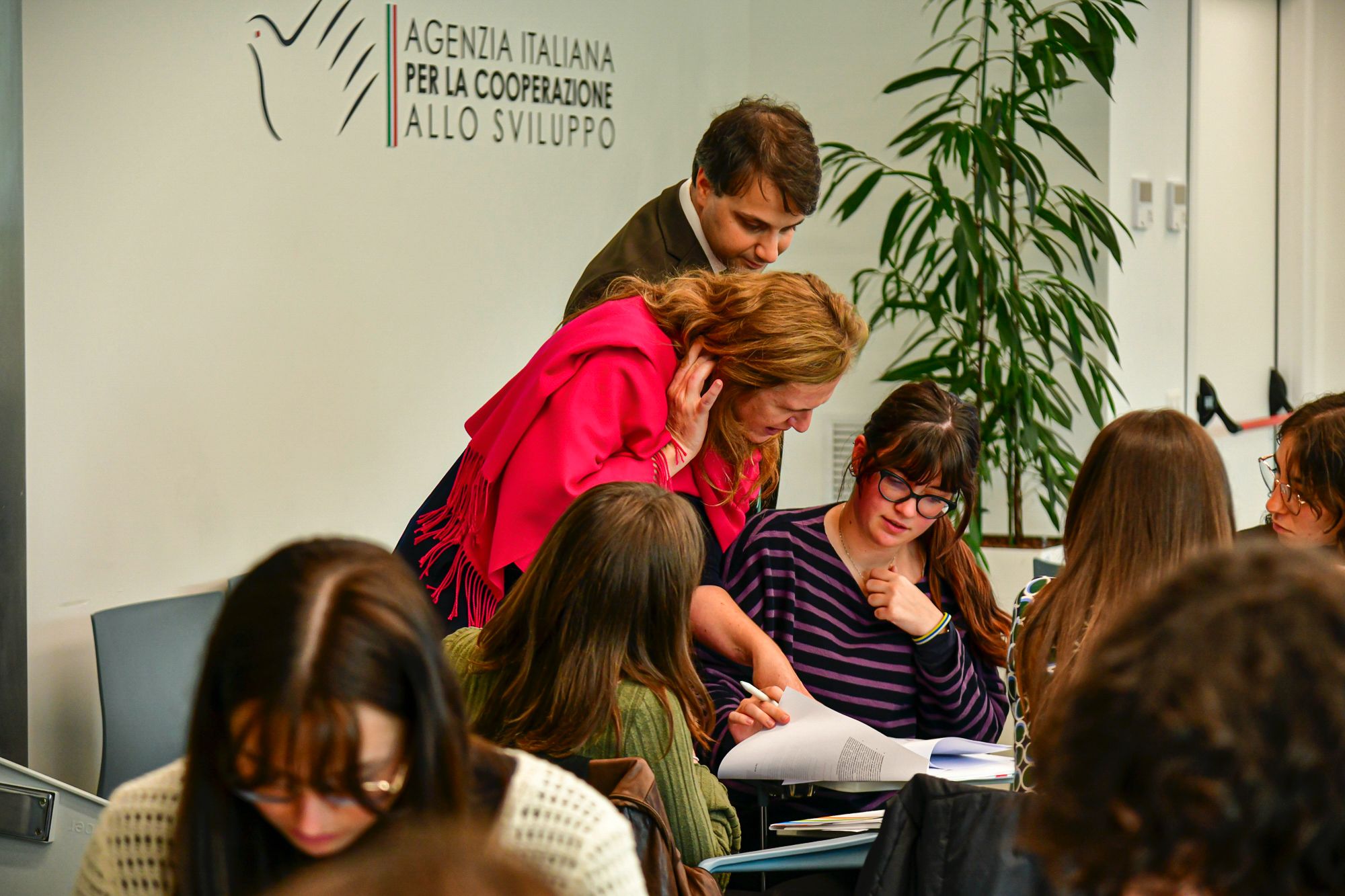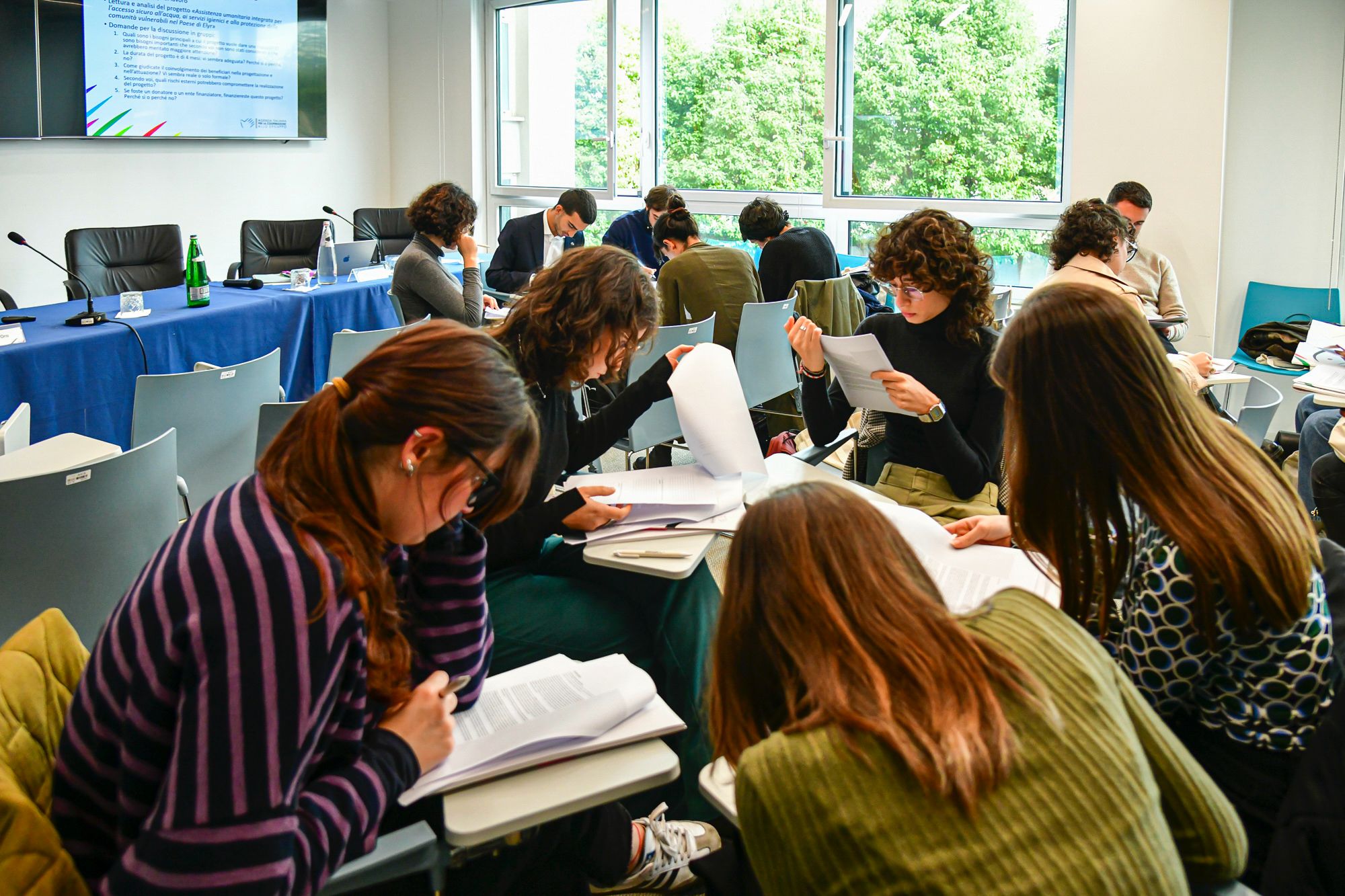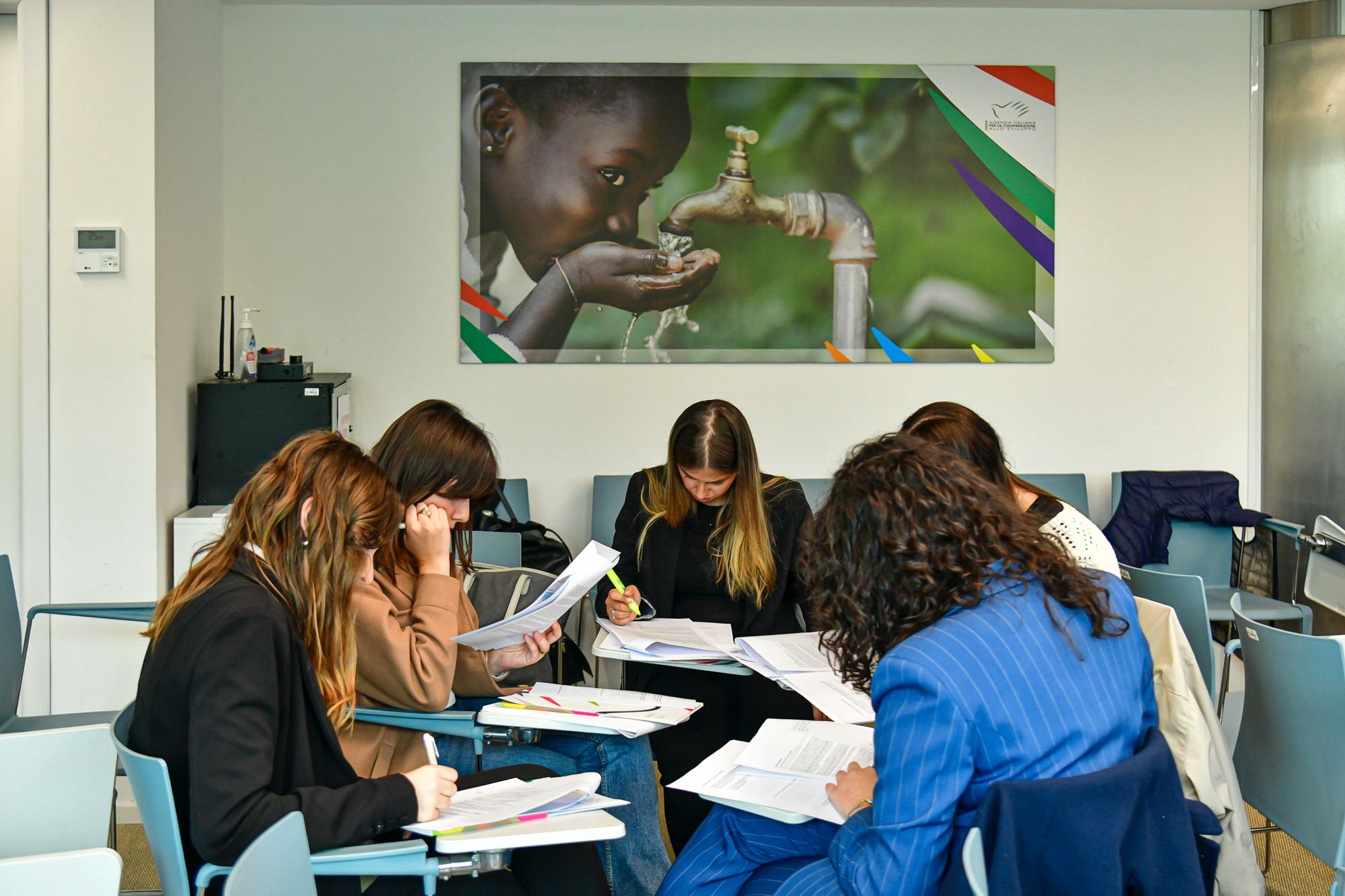Over 27,000 staff members from Italian Civil Society Organizations (CSOs) are currently engaged in international development cooperation projects, working across emergency contexts and long-term initiatives. A special study day titled “Professione Cooperante” (The Aid Worker Profession) was dedicated to them — and in particular to young people interested in pursuing this career path. The event was promoted by the Italian Agency for Development Cooperation (AICS) as part of the 16th edition of the “Festival della Diplomazia”, with the support of the Italian Ministry of Foreign Affairs and International Cooperation (MAECI) and the portal Info-Cooperazione.it.
The event took place at AICS headquarters in Rome, with the participation of institutional representatives, civil society organizations, universities, and students. Thanks to collaboration with the CUCS – University Coordination for Development Cooperation, the meeting was open to all Italian universities and included a practical session for fifty students from La Sapienza and Roma Tre Universities, who worked on a humanitarian case study exercise.
In a message from AICS Director Marco Riccardo Rusconi, who was on a technical mission for the reconstruction effort in Palestine promoted by the MAECI, he emphasized the need to “recognize the value of cooperation as a profession — one that requires specific skills, continuous training, passion, and sensitivity toward the most fragile contexts.”
Deputy Director Giuseppe Cerasoli, standing in for Rusconi, highlighted the evolution of the aid worker’s role:“Goodwill alone is no longer enough — we need specific competencies to design and manage complex interventions. That’s why collaboration with universities is so important,” he noted.
Giulia Orlandi (MAECI, Unit for Strategies and Multilateral Global Processes of Development Cooperation) outlined the strategic priorities of Italian cooperation and the Mattei Plan, focusing on Africa while maintaining attention on other areas such as Gaza, Ukraine, and Latin America.
A key moment of the day was the presentation by Elias Gerovasi, founder of Info-Cooperazione.it, who shared the results of an analysis of over 2,000 job postings published in 2024 by Italian CSOs operating in 77 countries. The most sought-after profiles were: Project and Program Managers (30.7%), administrative and accounting officers (17.5%), and Heads of Mission or Country Representatives (7.9%).
According to Gerovasi “Cooperation has become more professional and technical than in the past. The number of professionals has grown by 30% in the last five years. It’s no longer just about volunteering — it requires training, specialization, and the ability to work in complex and unstable contexts.”
Cristina Franchini, Head of External Relations at UNHCR Italy, discussed the impact of cuts to international funding: “We’ve had to suspend assistance to 11 million people,” she explained. “Education has also been severely affected — 41% of refugees are children.”
She highlighted that 122 million people are currently displaced worldwide, including refugees and internally displaced persons.
“The work of NGOs, international agencies, and the entire cooperation system is essential to respond to a crisis of this scale — as is the commitment of individual citizens,” Franchini concluded.
Another key session focused on the Universal Civil Service abroad, presented by Lucia De Smaele of FOCSIV. For 2026, the network of faith-based organizations will offer 632 positions in international projects, out of a national total of 1,700. Main areas of intervention include support for vulnerable people (48%), education (13%), and health (12%). De Smaele also outlined the typical volunteer profile: most are aged 24–29, hold a bachelor’s or master’s degree, and 73% are women. “International civil service is an invaluable training ground,” she said, “but it’s not enough on its own. Continuous training and mentoring are needed to make cooperation a true profession.”
In the afternoon, attention turned to practical training through a workshop led by professors Marco Cilento and Lorenzo Benaduci, together with AICS humanitarian crisis experts Daniele Oro and Cecilia Chiapero. Students from La Sapienza and Roma Tre developed cross-cutting skills such as problem solving, teamwork, resource management, and critical analysis. The initiative was highly appreciated by participants, who gained hands-on insight into the operational challenges typical of emergency situations.
Throughout the day, numerous speakers helped paint a dynamic and multifaceted picture of the cooperation sector. Among them:
- Guido Zolezzi (University of Trento, CUCS Coordinator), who stressed the importance of linking academia and cooperation: “Universities must not only educate, but also support students as they transition into the profession.”
- Riccardo Sansone (Oxfam Italy), who reiterated the role of NGOs as key actors in project implementation and community dialogue.
- Caterina Di Biase (AICS Human Resources Office), who provided practical guidance on internships, selection processes, and professional opportunities within the Agency.
Related news:
“Professione Cooperante: Study day dedicated to the key actors of international cooperation” – October 14, 2025
